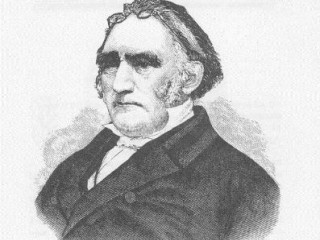
Francis Wayland biography
Date of birth : 1796-03-11
Date of death : 1865-09-30
Birthplace : New York City, New York, US
Nationality : American
Category : Historian personalities
Last modified : 2011-05-05
Credited as : Educator, clergyman,
Francis Wayland, American educator and clergyman, was in the forefront among educators who urged reforms in American collegiate education.
Francis Wayland was born in New York City on March 11, 1796, to a Baptist family recently emigrated from England. He entered Union College, Schenectady, at the age of 15. After his graduation in 1813, he began studying medicine with doctors in Troy. He received his license to practice medicine but decided to study theology and went to Andover Theological Seminary in Massachusetts in 1816.
Financial difficulties interrupted Wayland's theological studies. He accepted a tutorship at Union, where he associated with the president of the college, Eliphalet Nott. After 4 years in teaching, he became pastor of the First Baptist Church of Boston in 1821. In 1825 he married Lucy L. Lincoln, and the next year he resigned his pastorate to become a professor of moral philosophy at Union. In 1827 he became president of Brown University.
At this time Brown was suffering from a decline in applicants, faculty dissension, and a breakdown in student discipline. To correct the abuses, Wayland called for more faculty responsibility in teaching and in the supervision of student life and for greater student discipline.
Wayland also tackled the problems of declining enrollments and financial crises. In 1842 his "Thoughts on the present Collegiate System in the United States" cast him nationwide as a critic of higher education who urged drastic reforms. He charged that college education did not meet the needs of an American public with increasing diversity of backgrounds and educational needs. His reforms stressed an expanded curriculum, including science; a student's election of his own course of study; flexibility in the required residence for a degree; thoroughness in teaching; increased fees; and better library facilities. In 1850 his report to the Brown board of trustees called for an overhaul of the college's educational program in order to attract more students and improve the college's usefulness to society.
Wayland's proposals ultimately won disfavor, and he resigned in 1855. After his first wife's death in 1834, he had
married again in 1838. His later years were spent in writing and as pastor of a Baptist church in Providence, R.I. He died on Sept. 30, 1865.
















